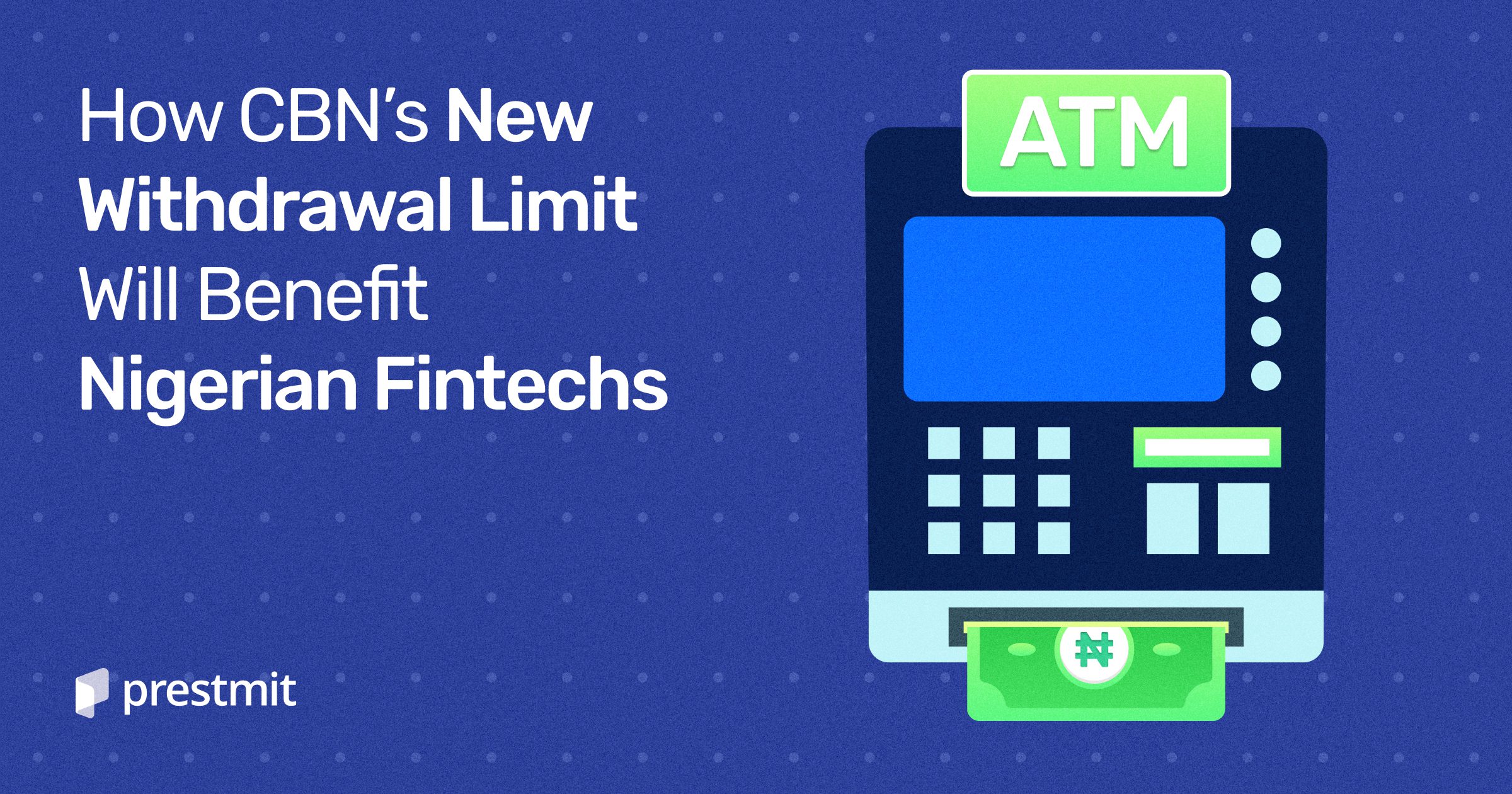Nigerians make transactions every day to meet personal or business needs. But as people constantly withdraw their money from banks, CBN is trying to control the wide flow of naira to prevent possible inflation, hence placing a withdrawal limit. While this may mostly affect commercial banks, fintechs seem to be allowed to thrive. Therefore, you may want to know how CBN’s new withdrawal limit will benefit Nigerian fintechs.
The Central Bank of Nigeria (CBN) is the apex bank in the country, saddled with the responsibility of making monetary and fiscal policies that would benefit the people and the economy.
In its policy framework, the CBN has been using trends and predictive analysis to implement different strategies to improve the country’s economic landscape.
We can recall the design of the naira in 2021, which was created as a digital currency in which it is pegged to the fiat naira 1:1. This is evident in how the CBN is embracing digitization and, which culminated in its withdrawal limit policy.
Overview Of CBN’s Withdrawal Limit Policy

The Central Bank of Nigeria (CBN) recently issued a circular that excluded microfinance and mortgage banks from paying the processing fee for transactions above the cash withdrawal limit in Nigeria.
However, it mandated these institutions to adhere to the existing cash withdrawal limit that was rolled out in 2022.
It could be recalled that the CBN had, in 2022, released a circular that announced the new withdrawal limit to support the controversial naira redesign policy.
This was in the Central Bank’s bid to constrain Nigerians’ access to excess cash at hand as N200, N500, and N1,000 were being redesigned.
Hence, there is a need to reduce the circulation of the old notes that would cease to become legal tender. But that didn’t happen.
Therefore, the two-page document showed that individuals can withdraw N500,000 across all banking channels weekly before a processing fee of 3%.
Corporate organizations will incur a processing fee of 5% after exceeding the weekly threshold of N5 million.
The circular revealed that individuals or organizations seeking to withdraw above these limits must provide certain documents.
These include valid proof of identity, bank verification number (BVN), letter of approval from the MD/CEO of the financial institution, tax identification number (TIN), etc.
However, in all these, the emergence of a time when the debate of digital currency as the future of money is on.
This is due to the constant seeking of ways to replace cash withdrawals with digital transactions that are deemed seamless. These are what fintechs offer.
Ways CBN’s Withdrawal Limit Will Help Nigerian Fintechs
1 . Increased Customer Base
Nigerians constantly seek to withdraw amounts of raw huge cash without incurring processing fees after exceeding their weekly limit.
This is common with small to large-scale businesses needing cash to keep their operations flowing smoothly.
But this can make bank customers leave commercial banks for fintechs – mostly microfinance banks excluded from the processing fees.
Therefore, this would allow various fintechs to have more customers and expand at the expense of traditional/commercial banks.
For some, fintech does not charge a fee when withdrawing from your account.
This singular benefit attracts people to create an account with such fintech, growing its customer base.
2. Mainstream Option For Average Nigerians
Nigerian fintechs provide fast and seamless transactions as compared to traditional banks.
This was evident in how they became highly sought-after during the naira scarcity early in 2023 when they enabled Nigerians to make transactions without a glitch.
It was when a preponderance of the traditional banks had a downtime in which their customers could not transact with them.
The innovation that the fintechs provided at this time made them endeared by Nigerians as many people had to open an account, which they are still using to date. This led to some traditional banks losing some of their customers.
Today, many Nigerians believe that your access to banking is incomplete without having a fintech account. This is because transactions and payments are lightning-fast on various fintech platforms.
For instance, Prestmit provides a digital payment system where you can pay different bills immediately.
3. Agency Banking
Fintechs can integrate agency banking into their service to broaden their scope of operation.
Agency banking enables financial inclusion by giving people in urban and rural areas unrestricted access to various financial services.
For instance, the CBN’s new withdrawal policy can prompt fintechs to create point-of-sale (PoS) services in rural areas far from banks.
This would enable people to withdraw any amount at will while it grows the fintech company.
This would give fintechs an opportunity over traditional banks while keeping them highly competitive.
Frequently Asked Questions (FAQs)
How Much Cash Can I Withdraw Under The CBN Policy in 2023?
Individuals and corporate organizations can withdraw a maximum of N500,000 and N5 million, respectively.
Is CBN’s New Withdrawal Limit Applicable To Fintechs?
The withdrawal limit policy designed by the CBN also applies to fintechs, which are digital microfinance banks.
However, there are no processing fees for these institutions, as contained in the CBN’s circular. This is the advantage they have over traditional banks.
What Is The Benefit Of CBN’s New Withdrawal Limit For Businesses?
The new withdrawal limit will reduce cash transactions for small businesses, enabling them to go digital with ease to track their daily sales and manage inventories. This would lead to more customers for fintechs.
Conclusion
The CBN designed the cash withdrawal limit as a monetary policy to control how much cash people carry in the economy. While this has its positive sides, there are negatives to this decision.
But, this policy ultimately favors fintech, an emerging industry in the country, and there is hope that this will continue to improve the sector’s growth.

